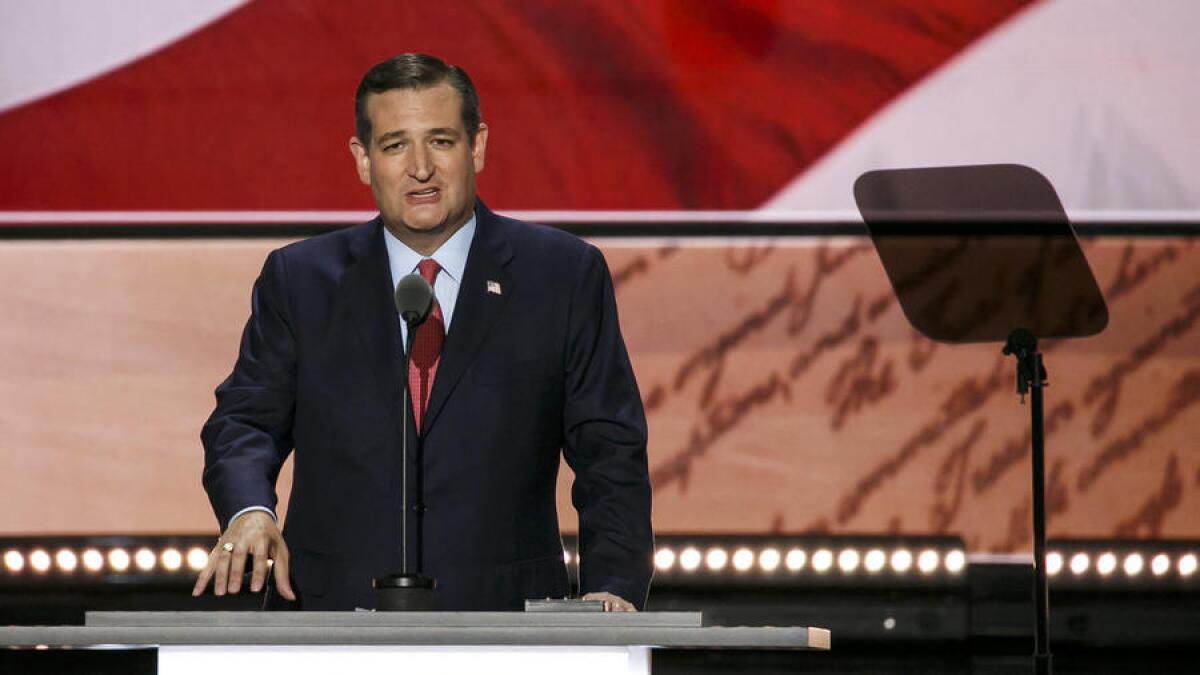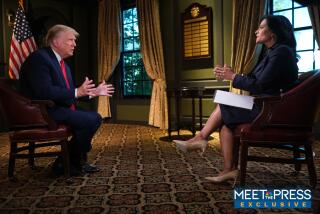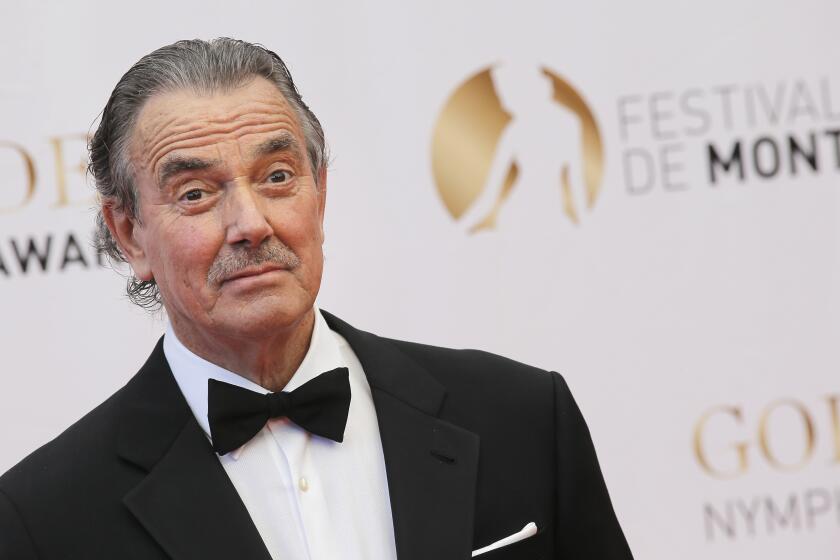Commentary: Ted Cruz’s refusal to endorse Trump provides the GOP convention with one of its only exciting TV moments

For some time now, the two national political conventions that nominate a new presidential candidate every four years, have been, as television events, little more than days-long infomercials.
Wrapped around some parliamentary procedure, they lead to a big speech to as big an audience as the speaker can expect until she or he is inaugurated as president. What politics are conducted go on far out of the sight of the cameras.
But the conventions as witnessed by the wider world are intentionally light on news and long on message, as carefully crafted and as frequently dull as any event whose outcome has, for all intents and purposes, already been decided.
See the most-read stories in Entertainment this hour »
Donald Trump is the Republican candidate this year — that was officially declared Tuesday. As his supporters and detractors alike will point out, he is a different sort of candidate: an apparently unmanageable outlier whose relationship with the part of his party that knows how to stage a convention and run a general election campaign and such is less than perfect. A stretch limo’s worth of Republican A-listers had found it convenient to be otherwise occupied, elsewhere.
It was easy to imagine that a Trump convention would be some kind of tacky fun — reality TV, with a sparkly game show aesthetic, showgirls carrying cards to announce the next speaker; maybe someone would win a car at the end. But unlike the debates — which actually do have some of the flavor of reality television, being engineered to create drama and conflict as much as to serve the electorate — and notwithstanding the presence of reality television stars on the podium, it had been more or less an ordinary convention, if a more than usually angry one. Films and speakers, some rousing, some numbing, represented the party and the party’s people; the roll call, with its Fun Facts about each alphabetically succeeding state, rolled on without incident.
Unlike everything that had preceded it on the convention stage...Cruz’s gesture of refusal at least felt bold and, in contrast to Christie’s speech, genuine.
There were some minor disturbances, to be sure, including a brief attempt by petition-wielding anti-Trump forces to unbind delegates to “vote their conscience,” which generated some action on the floor and cable coverage in Monday’s opening session. And Trump’s silhouetted appearance in a haze of white light to introduce his wife, Melania, for her opening-night speech, bucked tradition by coming so early in the week. But nothing that made you feel that the broadcast networks had erred by limiting their coverage to a nightly hour of prime time.
And then came Wednesday, and with it Texas Sen. Ted Cruz, whom Trump liked to call “Lyin’ Ted” and who had earlier called Trump a pathological liar, a narcissist and a bully in exactly those words. It wasn’t so much what Cruz said Wednesday — he delivered a rhetorically efficient speech on party principles that won repeated applause and cheers, without going to the call-and-response gimmickry that characterized fellow primary loser New Jersey Gov. Chris Christie’s earlier appearance — as what he didn’t.
As it became increasingly clear that he was not going to endorse Trump or even mention him in more than passing, a segment of the crowd grew restless, then angry, and started booing and heckling. Cruz kept his hand on the wheel, driving straight ahead into what was either the beginning or the end of his 2020 presidential run. “Vote your conscience,” was all he’d say — Trump, not Trump, whatever. Trump himself appeared conspicuously at the back of the room toward the end, either to take the heat off Cruz or to turn it up; commentators were mixed.
A man of whom Sen. Lindsey Graham (R-S.C.) had once joked, “If you killed Ted Cruz on the floor of the Senate, and the trial was in the Senate, nobody would convict you,” the Texan was immediately characterized, in the punditorium and Twitter-sphere, as a sore loser. But unlike everything that had preceded it on the convention stage this week, Cruz’s gesture of refusal at least felt bold and in the moment and, in contrast to Christie’s speech, genuine and principled. It was calculated, certainly, but at least it wasn’t the kind of calculation that has turned conventions into commercials.
It was politics in action, in public. And, for a moment, it was essential television.
On Twitter @LATimesTVLloyd
Jon Stewart and Stephen Colbert take on Donald Trump on ‘The Late Show’
Appreciation: Garry Marshall, endlessly hip, delivered mainstream comedy with an offbeat edge
Danny McBride’s ‘Vice Principals’ is a high school mean girls comedy built around adult men
More to Read
The complete guide to home viewing
Get Screen Gab for everything about the TV shows and streaming movies everyone’s talking about.
You may occasionally receive promotional content from the Los Angeles Times.






